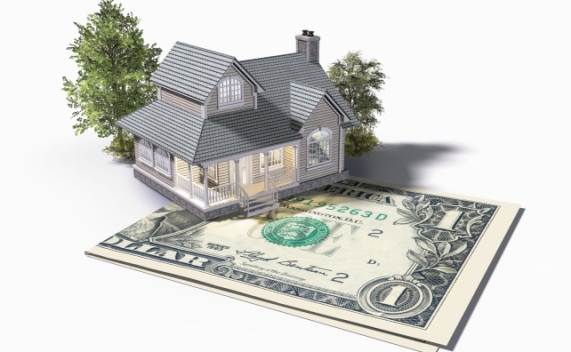Kiesel not calling the bottom, but sees a number of positive signs; 'ultimate inflation hedge if you buy cheap'
Mark Kiesel, the Pacific Investment Management Co. managing director who sold his home in 2006 when he deemed the market a bubble, says it's time to buy.
“I was one of the most negative on housing,” Kiesel said in a telephone interview. “I finally came to the conclusion housing is looking pretty decent.”
Kiesel said he bought a house in Newport Beach, California, where Pimco is based. Today he published a credit market note titled “Back In” on the firm's website in which he writes, “I'm not sure U.S. housing prices have bottomed -- only time will tell -- but there are many more positives today than there were six years ago when I sold my house.”
Home prices that have fallen 35 percent from their mid-2006 peak and mortgage rates of less than 4 percent are helping make it a good time to buy, said Kiesel, who is global head of the corporate bond portfolio management group at Pimco. Other signs the housing market is turning around include foreclosure filings dropping to levels last seen in 2007 and sales of new and existing homes that have begun to increase as rising rents boost the relative affordability of purchasing, he said.
“For those of you renting or on the sidelines, I recommend you at least consider getting ‘back in' and buying a house,” he wrote in the note. “The future is hard to predict, but U.S. housing is healing and is probably close to a bottom.”
Pimco, which oversees the world's largest mutual fund, had $1.77 trillion in assets under management as of March 31.
He declined to disclose details about his new home or how much he paid, except to say it's in Newport Beach, a coastal community about 44 miles (70 kilometers) south of Los Angeles. The purchase price of his new home, which he's moving into next weekend, was about one-third below what he would have paid for it at the top of the market -- about the time he sold his last property in May 2006.
‘Had No Idea'
“I had no idea that would end up being the peak,” he said in the telephone interview. “No one knew back then. It was basically luck.”
Kiesel sold his last home after concluding that excess construction by homebuilders and easy lending standards set the stage for a crash.
“Housing is the next Nasdaq bubble,” he said in a June 2006 interview with Bloomberg, a month before U.S. home prices reached their peak, according to the S&P/Case-Shiller index of values in 20 U.S. cities. “It's not just houses that will be for sale. You're going to see financial assets for sale over time, and ultimately corporate bonds.”
As recently as December, Kiesel said he would hold off buying because he expected prices to keep falling through 2013.
Unemployment Declines
The U.S. unemployment rate in April was 8.1 percent, down from 8.5 percent in December. Lenders have begun to loosen the reins on credit as bank balance sheets have improved, a trend that will boost investment throughout the economy, Kiesel said.
The U.S. manufacturing, technology, chemical, automotive and energy industries have recovered to the point that they're driving housing demand in states including Texas and North Dakota, Kiesel said. In such cities as Miami and Phoenix, home prices have fallen so much that foreign buyers seeking bargains have bought enough property to start a price recovery, he said.
In Kiesel's case, buying became more attractive after the owner of the residence he was leasing wanted to raise his rent 10 percent, he said.
“I remember balking at that,” he said. “Basically, landlords finally have pricing power.”
Investors Buy Housing
Rising rents make housing an attractive purchase for investors compared with the low yields of such alternatives as U.S. Treasury bonds, Kiesel said. Housing “is the ultimate inflation hedge if you buy cheap,” he said.
The expectation that values will rise has reduced the inventory of homes listed for sale as owners hold off to sell at higher prices later, Kiesel said. That made it hard to find a property worth buying, he said.
“All the good stuff is taken,” he said. “What finally brought me back was finally finding a decent property.”
--Bloomberg News--







